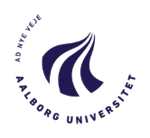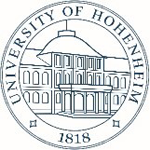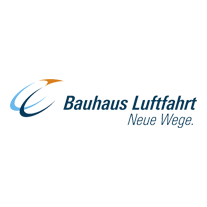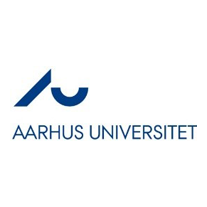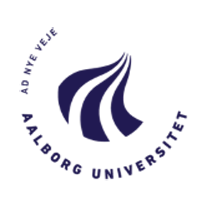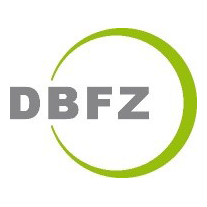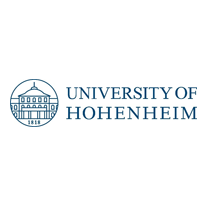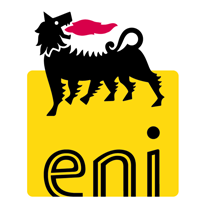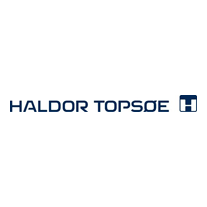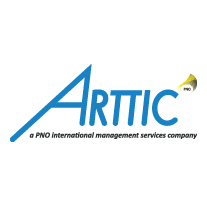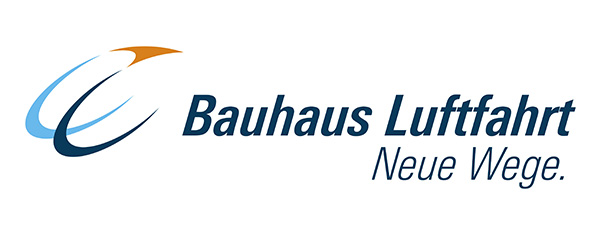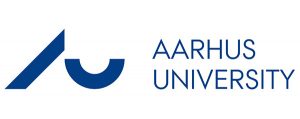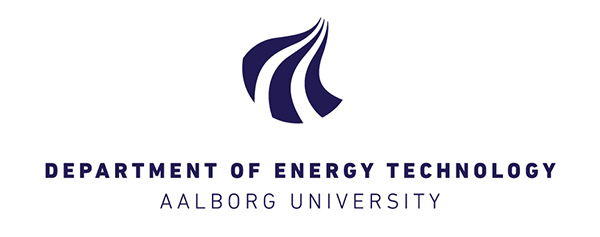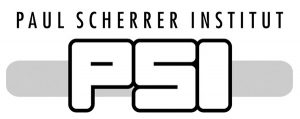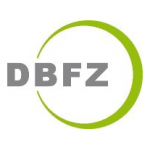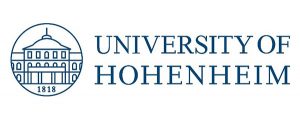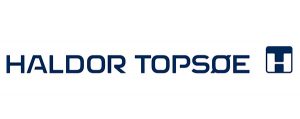The partners
BAUHAUS LUFTFAHRT
General information
Bauhaus Luftfahrt (BHL) is an interdisciplinary non-profit research institution of the four aerospace companies Airbus Group, Industrieanlagen-Betriebsgesellschaft (IABG), Liebherr-Aerospace and MTU Aero Engines and supported by the Bavarian Ministry for Economic Affairs, Media, Energy and Technology. The team of around 35 scientists examines innovation potentials in the fields of energy, technology, engineering, operations and knowledge management for the long-term future of mobility in general and the future of air travel in particular. With a time horizon beyond 2035, research at Bauhaus Luftfahrt is based on a holistic approach that combines different disciplines for technical, economic, social and ecological analysis of future concepts and integrated solutions.
Role in HyFlexFuel
BHL is the coordinator of HyFlexFuel. The scientific tasks of BHL in HyFlexFuel are concentrated on system analysis and holistic technology assessment in WP5 Performance potential, risk and implementation study. BHL acts as Lead of WP5 and also of WP6 Synthesis of results, recommendations and perspectives. The tasks of BHL have a strongly integrative character, because all involved process steps along the entire production chain have to be taken into account at system level. BHL is in charge of performing the techno-economic, environmental and risk analysis of the integrated process. This includes the quantification of life-cycle greenhouse gas emissions as one of the most relevant performance indicators of renewable fuels.
BHL brings together results from experimental and theoretical tasks and leads the development of recommendations and roadmaps for future R&D efforts towards commercialization of HTL-based fuel production.
Project staff
Dr Valentin Batteiger
Coordinator/Work Package Leader
Dr. Batteiger leads the research focus area on alternative fuels at Bauhaus Luftfahrt. His main research interest is on various alternative fuel pathways that potentially enable large-scale renewable fuel supply for aviation.
He has been involved in the first solar-thermochemical synthesis of kerosene within the EU projects SOLAR-JET and SUN-to-LIQUID (www.sun-to-liquid.eu). He co-authored a background paper on the perspective of power-to-liquid pathways for aviation (http://bit.ly/2cowOyf), and is responsible for the system analysis work of Bauhaus Luftfahrt within the German national project PowerFuel. Valentin Batteiger represents Bauhaus Luftfahrt in the aireg initiative (aireg – Aviation Initiative for Renewable Energy in Germany e.V., https://aireg.de).
Dr Arne Roth
Former project member
Arne Roth received his doctorate degree (Friedrich-Schiller University Jena, 2007) and diploma degree (Bielefeld University, 2003) in Chemistry. He is currently leading the research focus area on alternative fuels at Bauhaus Luftfahrt and looks back on 15 years of research experience in different thematic fields. His main areas of work are fuels assessment, fuels chemistry, chemical processes of biomass conversion and feedstock potentials. Arne serves as active member in various expert groups, e.g. in the German initiative aireg e.V. and the working group on “Protecting the Environment and the Energy Supply” of The Advisory Council for Aviation Research and Innovation in Europe (ACARE).
Christina Penke
Project staff
Dr Antoine Habersetzer
Project staff
Antoine Habersetzer received his doctorate degree in 2017 from the University of Bern and his diploma degree in 2013 from the University of Würzburg, both in the field of Geography. His main areas of research are innovation, entrepreneurship, and regional development. Antoine is working at Bauhaus Luftfahrt since 2017 and focuses on the economics of alternative fuels, comprising different aspects such as regional feedstock supply, facility location effects, system integration, and policy implications.
Leonard Moser
Project staff
Leonard Moser received his master degree in Chemistry in 2018 from the LMU Munich. The main focus of his studies were the synthesis of new tertiary phosphines and their Cu(I) and Zn(II) complexes, as well as gaining knowledge over a wide variety of analytical methods in the field of chemistry. After his studies, he worked in the department of analytics at Hilti and since 2019 he has been a researcher at Bauhaus Luftfahrt, focusing on the thermochemical conversion of biomass into fuel.
Address
Bauhaus Luftfahrt e.V.
Willy-Messerschmitt-Strasse 1
82024 Taufkirchen, Germany
https://www.bauhaus-luftfahrt.net
AARHUS UNIVERSITy
General information
Aarhus University (AU) was founded in 1928 and covers the entire research spectrum from fundamental research towards applied and strategic research plus research-based advice to authorities. AU has about 37.500 students, (including 1.900 PhD students and almost 700 postdoctoral scholars) and about 7,600 employees. The university has strong international connections, and one out of four PhD students are international.
Department of Chemistry (AU-CHEM) has a strong research profile and houses several major Centers of Excellence. The department has more than 200 bachelor students, a large number of master students and more than 100 PhD students. The department has top class facilities for liquefaction, catalyst tests and chemical characterization. The project partners are also affiliated with the iNANO Interdisciplinary Nanoscience Center at AU, which is a major research and education center, conducting interdisciplinary and interdepartmental research with a large number of ongoing industrial projects and partnerships.
Role in HyFlexFuel
AU uses its state-of-the-art continuous HTL facilities to optimise the HTL process in engineering and chemistry terms. AU is responsible for delivering HTL water, bio-crude and solid samples from pilot-scale plant to partners, for upgrading and valorisation of side-streams. AU will apply advanced analytical equipment and experience for analysis of bio-crude samples and development of a unified HTL reaction model. AU will also support the system-level analysis, process modelling, risk assessment as well as techno-economic and environmental assessment.
Project staff
Associate Professor, Dr. Marianne Glasius
Work Package Leader
Marianne Glasius received her Ph.D. in 2000. Heads research group and analysis lab focusing on advanced chemical characterisation of compounds in complex matrices. Experience with HTL since 2010.
Dr. Konstantinos Anastasakis
Project staff
Konstantinos Anastasakis received his PhD from Leeds University (UK) in process engineering in 2011. Thesis on the potential of production of fuels and chemicals from marine biomass. Extensive experience in renewable fuels and chemicals. Experience in HTL since 2007.
Assistant Professor, Dr. Patrick Biller
Project staff
Patrick Biller received his Ph.D. from Leeds University (UK). Experience in running HTL reactors from batch to semi-industrial scale since 2010. Extensive international collaborations on successful HTL projects.
AALBORG UNIVERSITy, DEPARTMENT OF ENERGY TECHNOLOGY
General information
AAU was founded in 1974 as Aalborg Universitetscenter (AUC – 1974-1994) with a student population of only 1,600, which has grown to almost 21,000 in 2015, including more than 3,000 international students. Almost 40% of the students are within engineering and natural sciences, which makes AAU the largest engineering education institution in Denmark. In 2015, there were just under 1,000 PhD students enrolled in the AAU doctoral programme. AAU is a campus-based university, with main campus in Aalborg and satellite campuses in Esbjerg (major off-shore city in Denmark) and Copenhagen. In 2016, AAU Engineering was ranked 39 globally by the Shanghai Ranking (URWA).
The Department of Energy Technology (ET) consists of approximately 120 scientific staff, 100 PhD students, 60 guest researchers and 400 BSc and MSc students. For several years, ET has been faculty leader in terms of external research funding, publications and citations in both cumulative numbers and on a per-head basis. Several scientists have received high recognition in terms of awards and ERC grants, and the department has over the years established a strong research support unit as well as extensive, world class experimental facilities covering the range of research fields within the department. Within the field of HTL, ET hosts pilot scale facilities for continuous liquefaction as well as catalytic upgrading, supplemented by access to micro-scale parametric units and extensive analysis capabilities. Furthermore, actual fuel testing can be carried out in the lab.
Role in HyFlexFuel
AAU is leading WP3 on the upgrading of bio-crude. As a part of this, AAU will coordinate activities with the partners in the WP, and ensure that objectives are met on time. Specifically, AAU will perform all hydrotreating experiments in batch and continuous mode as well as analysis on inputs and outputs to these.
Project staff
Professor Lasse Rosendahl
Work Package Leader
Lasse Rosendahl (M), PhD, professor of thermal energy technology, group leader biomass for energy. More than 20 years of experience within thermochemical processes and more than 10 years specifically in the field of HTL and related areas. Author of over 75 WoS indexed publications, h-index 25. Principal investigator in several national and international research projects. Research board member in several Nordic countries. Reviewer for several international journals in the field of thermal energy and biomass technology. Danish expert representative to the Horizon 2020 Energy Program Committee.
Dr. Daniele Castello
Project staff
Muhammad Salman Haider
Project staff
He received his M.Sc. (Hons.) in Advanced Materials and Processes at the University of Erlangen-Nürnberg in 2018. During his Master`s degree, he successfully specialized in Chemical Engineering and Nano-technology. He writes his final thesis on “Denitrogenation and desulfurization of liquid fuels using polyoxometalate catalysts”, at the “Institute of Chemical and Reaction Engineering” under the supervision of Prof. Dr. Peter Wasserscheid. From May 2018, he joined the project as a Ph.D. student at Aalborg University with a research focuses on Catalytic Upgrading of Bio-crude and Fuel Production.
PAUL SCHERRER INSTITUT
General information
The Paul Scherrer Institute PSI is the largest research facility for natural and engineering sciences in Switzerland and conducts cutting-edge research in three main areas: matter and materials, energy and environment and human health. PSI develops, builds and operates complex large research facilities which are used by more than 2500 scientists from Switzerland and around the world every year to carry out experiments that are not possible anywhere else. PSI is committed to the training of future generations. About one quarter of our staff are apprentices, post-graduates or post-docs. PSI employs 2100 people, with an annual budget of approximately CHF 380 million. It is primarily financed by the Swiss Confederation as part of the ETH Domain.
The Catalytic Process Engineering group (CPE) comprises currently 15 coworkers including the group head, Prof. Frédéric Vogel. It is one of the leading groups in the field of catalytic hydrothermal gasification. CPE’s research activities range from molecular-level to pilot-scale investigations. Fundamental phenomena in hot compressed water are addressed by, for instance, advanced Raman, EXAFS, or neutron radiography in-situ studies. A prototype salt separator designed for a throughput of 50 kg/h has been successfully tested in collaboration with KIT on residues from anaerobic digestion in July 2015.
Role in HyFlexFuel
PSI-CPE is leading the work package 4 “Valorisaton of residual streams” and contributes to products characterization in WP 2. We convert the organic residues of the HTL process water phase to methane by our catalytic hydrothermal gasification process. The salts contained in the water phase are separated and collected as a concentrated brine, generating an additional value through the possibility of nutrient recovery. Furthermore, PSI-CPE characterizes the aqueous and bio-crude HTL process phases. We have an advanced analytics platform with state-of-the-art high resolution mass spectrometry.
Project staff
Prof. Dr. Frédéric Vogel
Work Package Leader
Prof. Dr. Frédéric Vogel (m) is a Chemical Engineer (M.Sc. and PhD both from ETH Zurich) who has been leading the development and research activities of PSI-CPE in the field of catalytic hydrothermal gasification since 2003. He is the Principal Investigator of a number of smaller and larger research projects related to hydrothermal gasification. Besides his activities at PSI-CPE, he is also acting as CTO of Hydromethan AG, a spin-off company founded in 2010 for scaling up and commercializing PSI’s hydrothermal gasification process. Since 2012 he is also professor for renewable energies at the University of Applied Sciences Northwestern Switzerland (FHNW). He has taught the Fundamentals of Process Engineering at ETH Zürich for nine years and teaches the same subject now at FHNW as well as a fundamental course on Bioenergy at FHNW. Frédéric Vogel has published more than 70 peer-reviewed scientific papers in high-ranking journals and made more than 100 contributions to international scientific conferences. He has contributed a chapter on Hydrothermal Processes for the new edition of “Energie aus Biomasse” edited by Kaltschmitt et al. He is a member of the scientific committee for the European Biomass Conference and an Editorial Board member of Biomass Conversion and Biorefinery.
Dr. Saša Bjelić
Project staff
Dr. David Baudouin
Project Staff
David Baudouin, PhD (m) is a senior scientist specialised in catalysis and material science with experience both in industry and academic environment. He obtained his M.Sc. in Chemistry and Chemical Engineering in Lyon and Tarragona and was attributed a PhD in catalysis from the University of Lyon, in collaboration with Sasol. After a post-doctoral stay at ETH Zürich, he worked in two start-ups as product development engineer and CTO. His research is focused on the design and characterization of heterogeneous catalysts and materials for hydrothermal processes. David Baudouin authored 25 peer-reviewed scientific publications and 4 PCT patents.
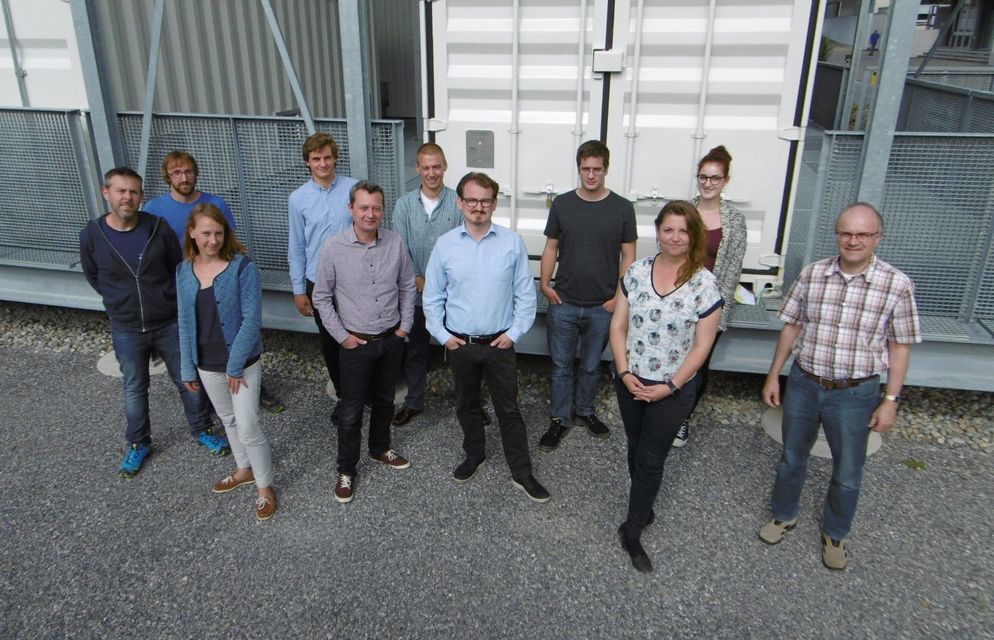
From left to right: P. Unverricht, D. Gschwend, Y. Bäuerle, C. Hunston, E. De Boni, D. Scholz, Dr. S. Bjelić, T. Käser, Dr. K. Arturi, L. Fischer, Prof. Dr. F. Vogel. Not on the picture: M. Szostak, Dr. D. Baudouin, S. Viereck (ETHZ), M. Roth (FHNW), F. Mangold (FHNW), S. Solin (FHNW)
DBFZ DEUTSCHES BIOMASSEFORSCHUNGSZENTRUM GEMEINNUETZIGE GMBH
General information
Deutsches Biomasseforschungszentrum (DBFZ): The DBFZ was established in 2008. It is the main research center for applied bioenergy research in Germany employing more than 220 researchers as well as technical and laboratory staff. It’s a non-for profit company; sole shareholder is the German Federal Ministry of Food (BMEL). DBFZs mission is to support the efficient integration of biomass as a valuable resource for sustainable energy supply. The development of new processes, methods and concepts takes place in close cooperation with business partners and research facilities. R&D is provided for all conversion pathways and technologies such as biochemical, thermochemical conversion, biorefinery technology and on bioenergy systems.
Role in HyFlexFuel
The tasks of DBFZ in HyFlexFuel are focussed on WP1 Feedstock availability and supply. DBFZ is leading and coordinating the work package. This will require close collaboration and communication with all partners involved in WP1 as well as with other WPs and tasks (especially WP2 and WP5). DBFZ will assess the availability of feedstocks for the HTL process on a national level for the EU28 member states. Furthermore, regional availability assessments will be conducted for selected feedstocks and member states based on exemplary feedstock supply chains and HTL technology configurations. As a result of this task, DBFZ will discuss potential feedstock availability for HTL conversion and provide indications for feedstock supply costs under consideration of regional and spatial characteristics and specific technical requirements defined by the HTL process and plant. Finally, DBFZ will analyze several key properties of selected promising feedstocks for HTL conversion, such as elemental composition, ash content, heating value, content of trace elements, content of lignin, cellulose, proteins, etc. The results of this task will feed into WP2 and other WPs.
Project staff
Franz-Fabian Bellot
Work Package Leader
Franz-Fabian Bellot has been working as researcher at DBFZ since February 2019. After receiving Master degrees in cartography and global change management, he worked for 10 years as a consultant and development advisor for international aid organizations in Africa and Asia. As a member of the Resource Mobilization Working Group at DBFZ, he is involved in the development of spatial analysis for the identification of preferred bio-economy regions as well as the GIS-based quantification of global biomass potentials.
Dr. Kati Görsch
Project staff
Address
Deutsches Biomasseforschungszentrum gGmbH
Torgauer Str. 116
04347 Leipzig, Germany
The UNIVERSITy of HOHENHEIM
General information
The University of Hohenheim UHOH has strong activities in agricultural science, but also in economics and natural science. In Germany, UHOH is the university with the largest faculty of agricultural science, and the leading German university in this field. This university was founded in 1818 and has now a focus on bio-economy. One of the areas of Hohenheim’s research work is conversion technology of renewable resources. It covers new products and new production processes, made of renewable feedstock.
Of particular interest here is the substitution of fossil fuel by biomass and valorisation of waste streams by the recovery of nutrients. Concerning gender aspects, it might be interesting that UHOH is the first German university with a female professor: Magarete von Wrangel (1923).
Role in HyFlexFuel
UHOH is consequently assigned to WP4 and has committed to address the nutrient recovery in this project. The main task is to find and optimize an effective recovery option for certain feedstocks. After the first assessment of all feedstock-dependant waste streams and a prescription of the fate of relevant nutrients like phosphorus and nitrogen, especially struvite (Magnesium ammonium phosphate) precipitation will be assessed as recovery option for liquid streams. As phosphate might be fixed in solid residues of the HTL process an acid leaching approach will be assessed to solve phosphates and make it available for struvite precipitation. The recuperation of nutrients is specifically addressed and is set out to produce a fertilizer in form of Magnesium ammonium phosphate (MAP/struvite), a fertiliser product with an established market. The recovery of nutrients shall also lead to a protection of the catalysts used in the catalytic hydrothermal gasification (cHTG) of process water phase.
Project staff
Prof. Dr. habil. Dipl. Chem. Andrea Kruse
Work Package Leader
Gero Becker, M.Sc.
Project staff
Ekaterina Ovsyannikova, Dipl.-Ing.
Project staff
Address
University of Hohenheim
Institut of Agricultural Engineering Garbenstr. 9
70599 Stuttgart, Germany
ORGANIC WASTE SYSTEM NV
General information
OWS is a world leading company in the construction and operation of anaerobic digestion plants, in the biodegradability and compostability testing of different types of materials and in waste management consultancy. OWS is a private company constituted in 1988 with headquarters in Ghent (Belgium) and subsidiaries in the USA, Germany and Japan. OWS developed the DRANCO process (dry anaerobic composting) to treat several types of organic municipal waste streams. In the last 10 years, OWS also offers processes for energy crops and agro/industrial waste streams (DRANCO-farm and BES). The latest addition to OWS’s waste treatment portfolio is the SORDISEP technology in which biogas, qualitative compost and recyclables are recovered from unsorted municipal waste streams. Besides design, construction and automation of anaerobic digestion and composting plants, OWS offers extensive biological support in AD-related projects, ranging from feasibility studies (including pre- and post-treatment steps) over start-up of AD-plants (own technology and third-party plants) to routine analyses and biological monitoring of the process.
OWS also offers diverse consulting services in the field of biodegradation and composting, waste composition, waste separation, recycling, integrated waste management and related legislation in both Europe and the USA. OWS provides contract research laboratory testing for the determination of the biodegradability and compostability of plastics, packaging materials, consumer products, detergents… under strict quality conditions. As a strictly independent laboratory working conform ISO 17025, OWS is recognized by all certification bureaus worldwide working in the field of biodegradability and compostability.
Role in HyFlexFuel
The Biogas Consulting & Support division of OWS is involved in different research topics with the aim to improve the efficiency of the anaerobic digestion process. As such, OWS will perform anaerobic digestion trials on the HTL wastewaters, both in batch and continuous process mode in a lab-scale environment. As these HTL wastewaters still contain a significant amount of COD, the target is to valorise this COD by converting it to biogas, which can in turn be used to fuel the internal energy demand of the process chain, or it can be sold to the grid. The remaining digestate containing all the nutrients will be converted in an organic fertilizer, thus fully closing the circle.
Project staff
Filip Velghe, Project Engineer BCS
Project staff
Lies Debeer, Project Engineer BCS
Project staff
ENI S.p.A
General information
Eni was founded in 1953. Its name is an acronym for the company’s full title Ente Nazionale Idrocarburi, now it is an integrated company that operates across the entire energy chain. It carries out oil & gas exploration, development and extraction, trades in oil, gas, LNG and electricity and sells high-quality fuels and lubricants, mainly in Italy, Asia, Africa and South America. Eni takes part to the process that will lead to the adoption of renewable energy sources, the so-called ‘decarbonisation’ of the economy.
The company considers technological innovation the heart of its economic growth and business competitiveness and the only lever to ensure the sustainability of future development.
The main topics of research in the field of renewable energy from biomass are:
- algae, waste, yeasts and bacteria conversion to advanced biofuels
- gasification or Short Contact Time Catalytic Partial Oxidation to syn gas followed by Fischer-Tropsch synthesis for conversion to biofuel
- thermochemical conversion of organic waste into bio-fuel
The main topics of research on solar energy are:
- the development of photovoltaic devices based on organic semiconductors
- the production of Luminescent Solar Concentrators photoactive materials for environmental and energy applications
- the development of Concentrating Solar Power systems for thermal and electric energy combined production
- development of technological solutions for solar energy storage
Role in HyFlexFuel
Eni will contribute to product evaluation of the main cuts (diesel and gasoline) of the products of bio-crude upgrading. Distillation fractions will be characterized for chemical and physical properties and performances. Eni will investigate most suitable drop-in points for bio-crude or upgraded bio-crudes in the fuel infrastructure and refinery systems, detailing the requirements for commercial exploitation as an integrated approach with their current refinery operations. Eni will also contribute to the development of a business case for a fuel production facility based on HyFlexFuel technology.
Project staff
Aldo Bosetti
Project staff
Project Manager in Renewable Energy and Environmental R&D Center
Stefano Chiaberge
Project staff
Stefano is a mass spectrometry specialist with about 14 years of experience, working as researcher at the Eni renewable energy and Environmental center. He graduated in Industrial Chemistry at the University of Turin. He is mainly focused on High Resolution FTICR Mass Spectrometry applications for the analysis of Petroleum, Bio-Fuels, Lipids, and biomass based chemicals. Stefano Chiaberge has published more 15 peer reviewed scientific papers.
Silvia Pavoni
Project staff
Graduated in chemistry from the University of Milan. She has experience in crude oil analysis and characterization, skills and expertise in petroleum chemistry, petroleum refining, process simulation and modelling, member of American Chemical Society and of Society of Petroleum Engineers.
Project Manager in the product R&D eni organization unit.
Daniele Bianchi
Project staff
Address
ENI S.p.A.
Renewable Energy and Environmental R&D Center
Via Fauser, 4
28100 Novara (NO), Italy
Upstream & Downstream R&D Center
Via Maritano, 26
20097 San Donato Milanese (MI), Italy
HALDOR TOPSOE AS
General information
Haldor Topsoe is a world leader in catalysis and surface science, committed to helping our customers achieve optimal performance. We enable companies to get the most out of their processes and products, using the least possible energy and resources.
Topsoe design, engineer and license a broad range of processes for chemical processing, hydroprocessing and emissions management. Topsoe offers over 150 different catalysts and we design and manufacture catalysts, equipment, and services tailored for specific customer needs.
We help our customers use fossil resources in the most responsible, eco-friendly and efficient manner possible. But we are also involved in shaping the future. Topsoe’s research and development work with new technologies for converting waste and byproducts into valuable fuels, gases and chemicals is at a very advanced stage.
We are headquartered in Denmark and do project development, R&D, engineering, production, and sales & service across the globe. Our offices cover North America, South America, Europe, Russia, Middle East, India, Southeast Asia and China.
In 2015, our revenue was approximately 860 million US dollars, and we employ some 2,600 employees.
Role in HyFlexFuel
Haldor Topsøe is world leader in hydroprocessing of renewable streams. As part of this Topsoe will be engaged in the hydrotreatment activities in the project, and advise on technology, development, selection and test of catalyst possibilities and as such ensure the best and most economical solutions.
As with fossil fuels, variations in renewable types are many (vegetable oils, animal fats, used cooking oils and pyrolysis oils, residues from pulp mills, etc.). To successfully produce fuels from renewables, the feedstock needs to be evaluated with regard to:
- Fouling tendency and grading catalyst requirements: Which contaminants will affect the cycle and to what extent (deactivation, pressure drop).
- Activity: Can the oxygenated compounds be easily hydrodeoxygenated (HDO)? Is organic nitrogen a concern due to its inhibiting effect on hydrotreating activity?
- Yield structure and product properties: The feedstock composition will have a huge influence on the end products and the end product properties. For example, some triglycerides may contain fatty acids with high carbon numbers that would produce molecules outside the desired fuel range.
- Deactivation: Phosphorous and silicon are known to deactivate the catalyst even at very low concentrations (a few ppm) and may deactivate the bulk HDO catalyst without a proper grading.
- Heat balance and hydrogen consumption: High oxygen content and unsaturated compounds will give rise to large exotherms and will also strongly affect the hydrogen consumption.
- Mechanical: The acid number and by-product of the feedstock will affect to which degree corrosion will be an issue for the unit.
- Unit operations: The handling of a wide operating window require strong experience in layout, control, and handling of upset situations.
Project staff
Director Per Zeuthen
Project staff
Per Zeuthen holds an MSc in Chemistry and Mathematics from the University of Odense, Denmark, and has been employed with Haldor Topsoe since 1983. Per has an extensive experience within hydroprocessing catalysis fundamentals. Through his career he has managed several large national and international research and characterization programs within fundamental understanding of the active CoMo and NiMo structures, coke characterization, deactivation mechanisms of hydroprocessing catalysts and detailed characterization of various petroleum fractions.
Per has a key role in the catalyst up-scaling and commercialization of the large Topsoe portfolio of hydroprocessing catalysts. In his present position as Senior Director, Refinery Business Unit he has the global responsibility for production and marketing of various hydrocracking and other hydroprocessing catalysts and technologies within Haldor Topsoe.
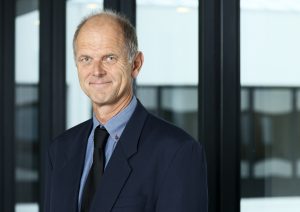
Address
Haldor Topsøe A/S
Haldor Topsøes Allé 1
DK-2800 Kgs. Lyngby, Denmark
ARTTIC
General information
Role in HyFlexFuel
ARTTIC is running the HyFlexFuel Project Office through which it will provide the methods, tools and operational support to promote an effective collaboration within the consortium. It will support the consortium in the daily management, administrative and contractual tasks to ensure the project is properly monitored and decisions and actions are prepared and taken according to the project’s progress. ARTTIC aims at simplifying the contractual and administrative work requested from the researchers as much as possible. Furthermore, ARTTIC supports project communication, dissemination, IPR management and exploitation activities.
Project staff
Andreas Schweinberger
Work Package Leader
Andreas Schweinberger is Senior Consultant at ARTTIC and joined the company in January 2012. Andreas has 12 years of experience in the management, communication and exploitation of European collaborative projects. He also worked for many years as project developer and innovation manager for national and European research activities in the field of ICT. He was work package and task leader in two CSA (Peach and RoboCom), developing strategies for strengthening collaboration in multi-disciplinary research environments. Andreas is currently leading exploitation activities as work package leader in the H2020 biotechnology project BIOCONCO2, including advanced business and exploitation planning. He holds a French Master degree in European Project Management and graduated in Political Sciences and Philosophy.
Dominika Mohyla
Project Manager
Dominika Mohyla received her Masters degree in Cross Cultural Communication and International Marketing at Newcastle University in the UK. Dominika has started at ARTTIC in August 2019, and is currently managing the HyFlexFuel project and supports other Horizon2020 projects in the area of Disaster management and Health.
Address
ARTTIC Innovation
Head office
Oskar-von-Miller-Ring 29
80333 Munich, Germany

